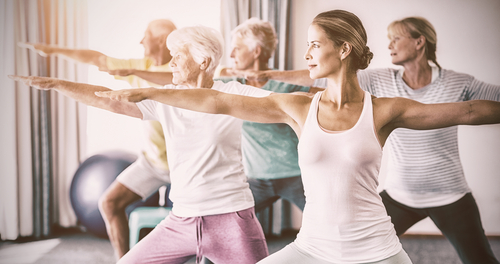
4 Wellness Activities That Can Help You Handle Grief
The loss of a loved one will never be easy, nor will grief for their loss ever disappear completely. Grief is an inevitable part of life, and everyone will experience it in their lives. Handling grief can be tricky. Our first impulse is to carry on, power through, and to simply “deal with it.” But burying our grief can lead to longterm consequences. Unresolved feelings can resurface years down the road and lead to depression, anxiety, and other problems. That’s why it is important to handle grief in a way that offers a long term resolution so that life may continue. Wellness activities are one way to help cope with grief, and developing a long term wellness strategy can help grieving family members recenter themselves physically, emotionally, and spiritually.
The following are a few ways wellness activities can help you handle grief:
Yoga
Yoga is an ancient practice that originated in India millennia ago. In its original form, it is first and foremost a spiritual practice that aligns the mind, the body, and the spirit. The Americanized version, which focuses on the physical movements of the practice, offers a wide range o benefits. Recent studies have shown that Yoga helps increase cerebral blood flow (blood flow to the brain). More blood flow to the brain is associated with better reasoning, relief of anxiety, and in this case, can help handle feelings of grief.
There are many forms of yoga, including hot yoga, stationary yoga, and aerial yoga. All of these forms focus on the same thing, which is to increase blood flow and center the body and mind.
Cardiovascular Exercise
Grief involves many different negative emotions, including feelings of anxiety, depression, and general sadness. All of these can be lessened to a certain extent by cardiovascular exercise. Exercise, especially vigorous exercise, releases a neurotransmitter called dopamine. Dopamine has many functions within the brain, including bolstering of positive emotions. This same mechanism is what makes drugs work the way that they do. A stimulant drug acts on a person’s dopamine receptors to create a “high”. Researches have known for a long time that this same effect can be achieved—to a point—through exercise.
Adding regular cardiovascular exercise to your routine can greatly improve your ability to handle grief. It is a fantastic way to counteract negative emotions, and it can help to motivate you to get out and live your life. Another effect of cardiovascular exercise is weight loss, which over time can boost self confidence and overall feelings of wellness.
Sleep
Grief can cause many sleepless nights. Over time, sleeplessness can alter the normal functioning of the brain and worsen the negative emotions associated with grief. Getting enough sleep is paramount to being able to effectively cope with grief. What if you can’t sleep? The quick answer could be sleeping pills, but these are not the best means to promote sleep. If sleepless nights are plaguing you, make time during the day for a short 20-minute nap. Research has shown that short naps throughout the day can make up for problems sleeping at night. This alone may help you cope better with grief, and keep you acting like your normal self during the day.
Another way to help promote sleep at night is to exercise regularly, as this will prompt your body to release chemicals that are associated with healthy sleeping habits. Not to mention exercise will tire you out, which can help calm your nerves before bed.
Laughter
Wellness experts have long espoused the benefits of laughter. Even forcing a smile can improve a person’s mood, so laughter may truly be a medicine of its own. A recent study from Japan has shown that just 10 minutes of laughter per day can reduce the risk of cardiovascular disease by nearly twenty percent.
Laughter during grief can be hard to bring about. There are, however, activities that you can do to encourage laughter. One such activity is called laughter yoga, which teaches participants how to laugh without good reason. It is both therapeutic and a great way to teach yourself how to loosen up to experience more laughter in your daily routine.




